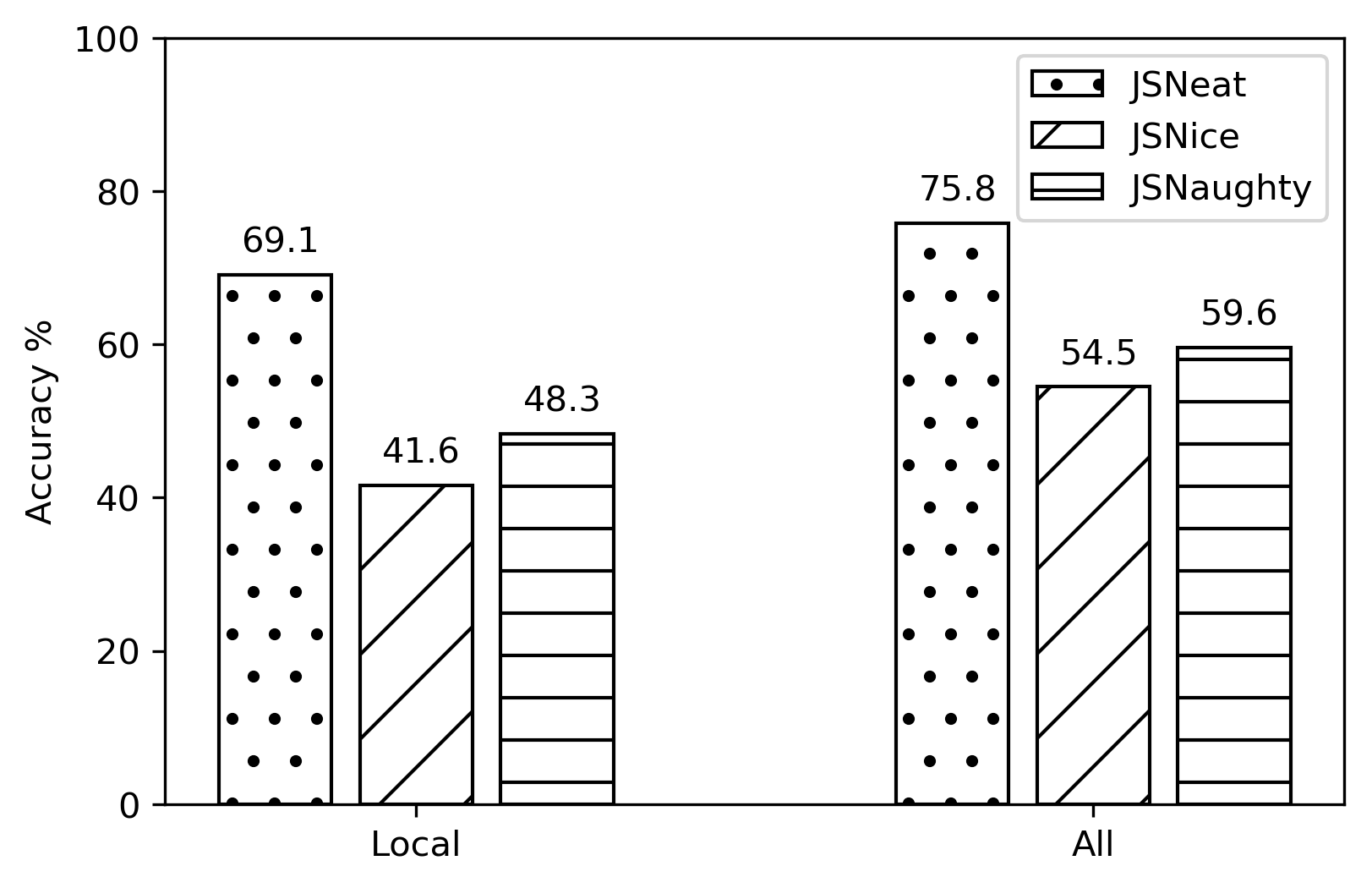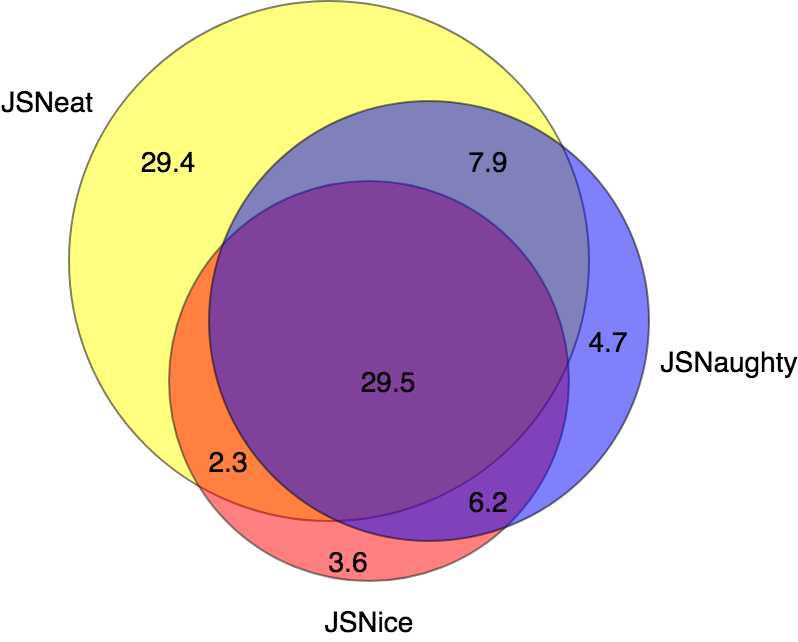RecoverJSName-JSNeat
 RecoverJSName-JSNeat copied to clipboard
RecoverJSName-JSNeat copied to clipboard
An information-retrieval-based approach to recover the variable names in minified JS code by searching for them in a large corpus of open-source
Recovering Variable Names for Minified Code with Usage Contexts - JSNeat
JSNeat - an information retrieval (IR)- based approach to recover the variable names in minified JS code. JSNEAT follows a data-driven approach to recover names by searching for them in a large corpus of open-source JS code.
Website
Official website : https://mrstarrynight.github.io/JSNeat/
Publication
This project is published on The International Conference on Software Engineering 2019 (ICSE 2019)
Slide
The presentation of the project in ICSE'2019 could be download here
Why do we create JSNeat?
In modern Web development, program understanding plays an equally important role. Web technologies and programming languages require the exposure of source code to Web browsers in the client side to be executed there. To avoid such exposure, the source code such as JavaScript (JS) files are often obfuscated in which the variable names are minified, i.e., the variable names are replaced with short, opaque, and meaningless names. The intention has two folds. First, it makes the JS files smaller and thus are quickly loaded to improve performance. Second, minification diminishes code readability for the readers, while maintaining the program semantics. Due to those reasons, there is a natural need to automatically recover the minified code with meaningful variable names. That's why JSNeat was born.
Techniques
The names of the variables in a particular function not only depend on the task in which the variable is used to implement (called task- specific context), but their names are also affected by their own properties and roles in the code (called single-variable usage context) and on the names of the other variables in the same function (called multiple-variable usage context):
- Single-variable usage context (SVC)
- Multiple-variable usage context (MVC)
- Task-specific context (TSC)
Empirical Result
In this experiment, we evaluate JSNEAT’s accuracy and compare it with the state-of-the-art approaches JSNice and JSNaughty.
Accuracy Comparison

Overlapping among Results from Three Tools

All experiments were run on a Linux computer server with twenty Intel Xeon 2.2GHz processors, 256GB RAM.

Corpus
We collected a corpus of 12,000 open-source JavaScript projects from GitHub with highest ratings. Download links: Corpus
Contributors
- Hieu Tran ([email protected])
- Ngoc Mike Tran ([email protected])